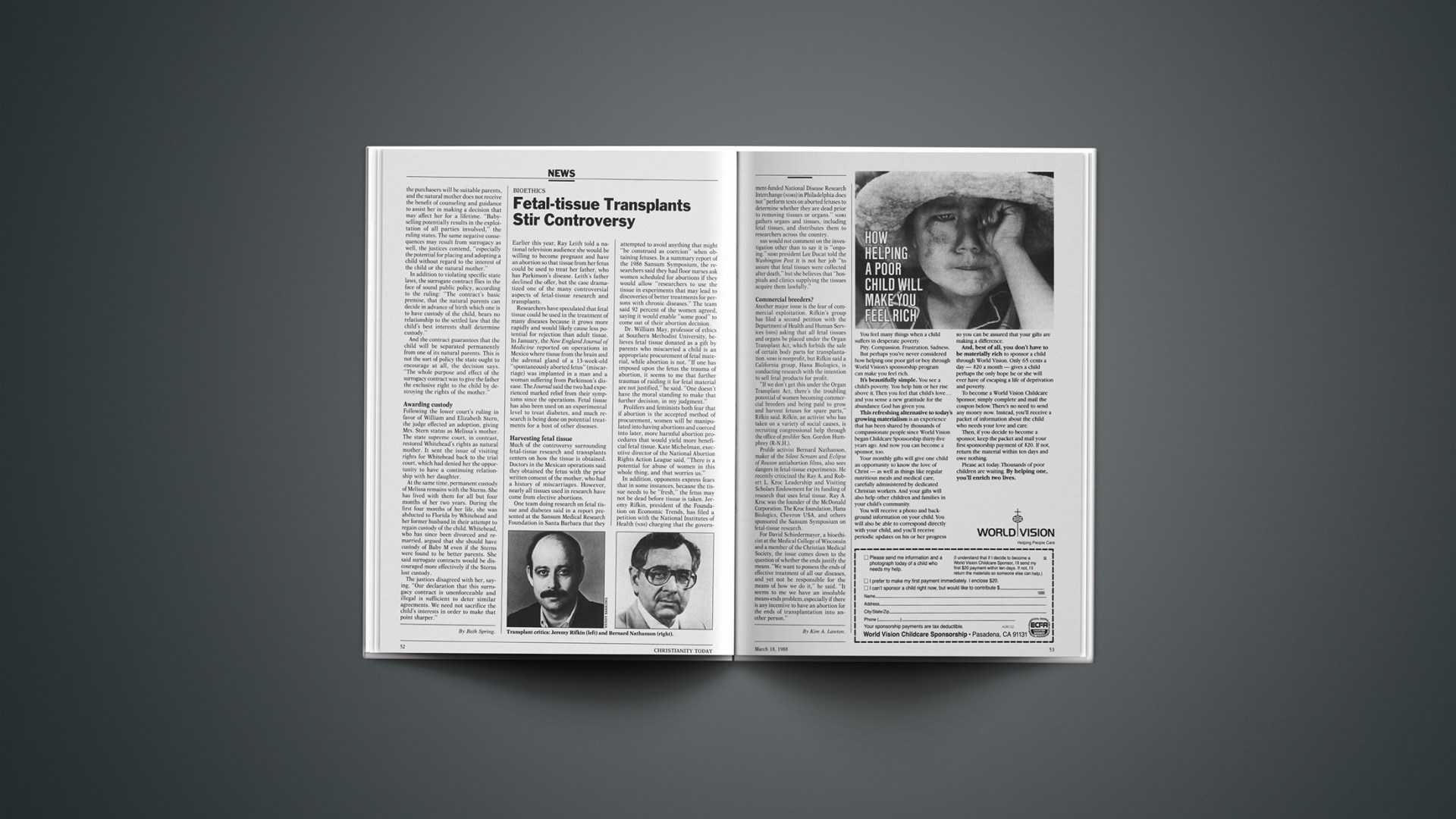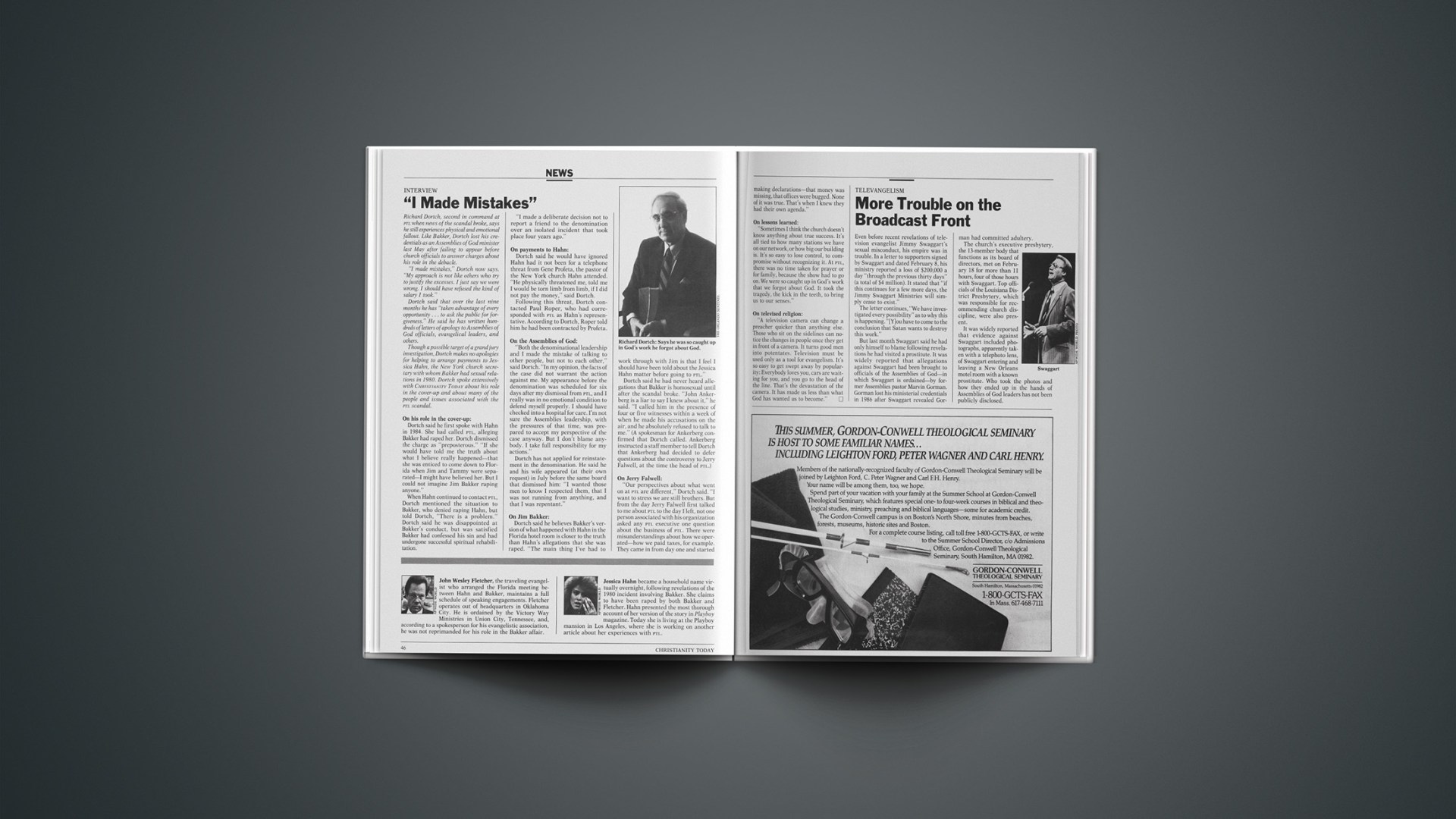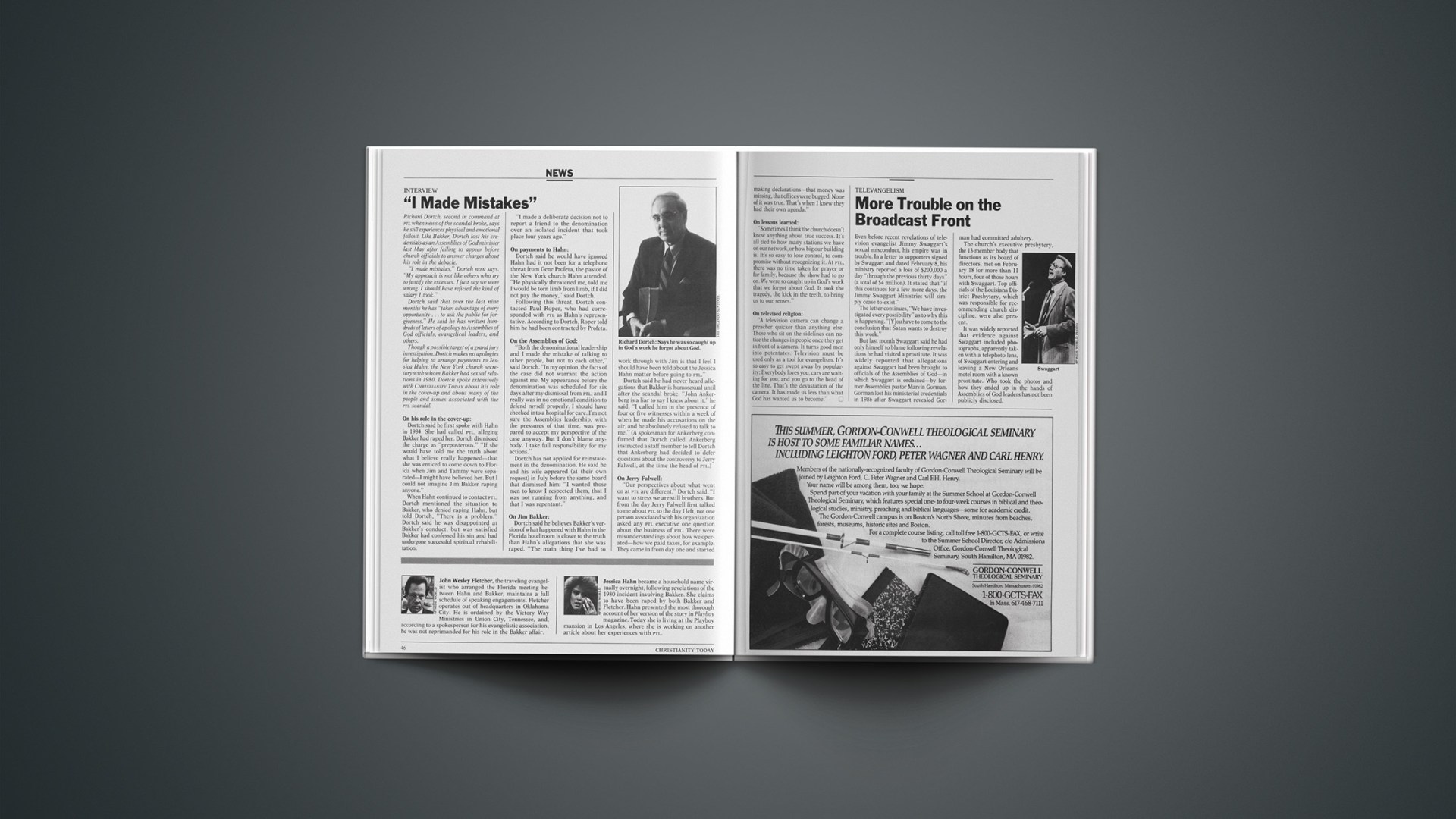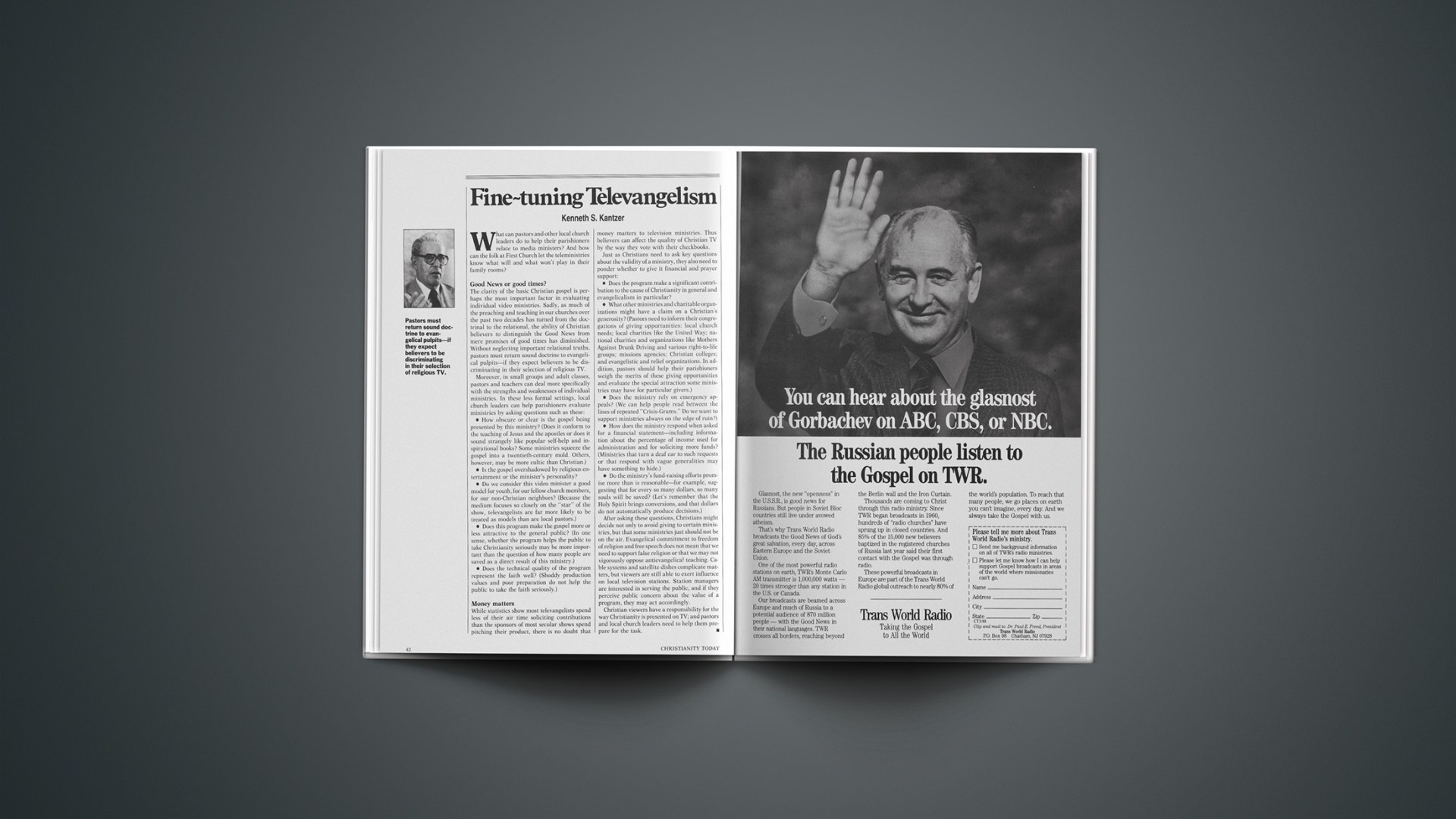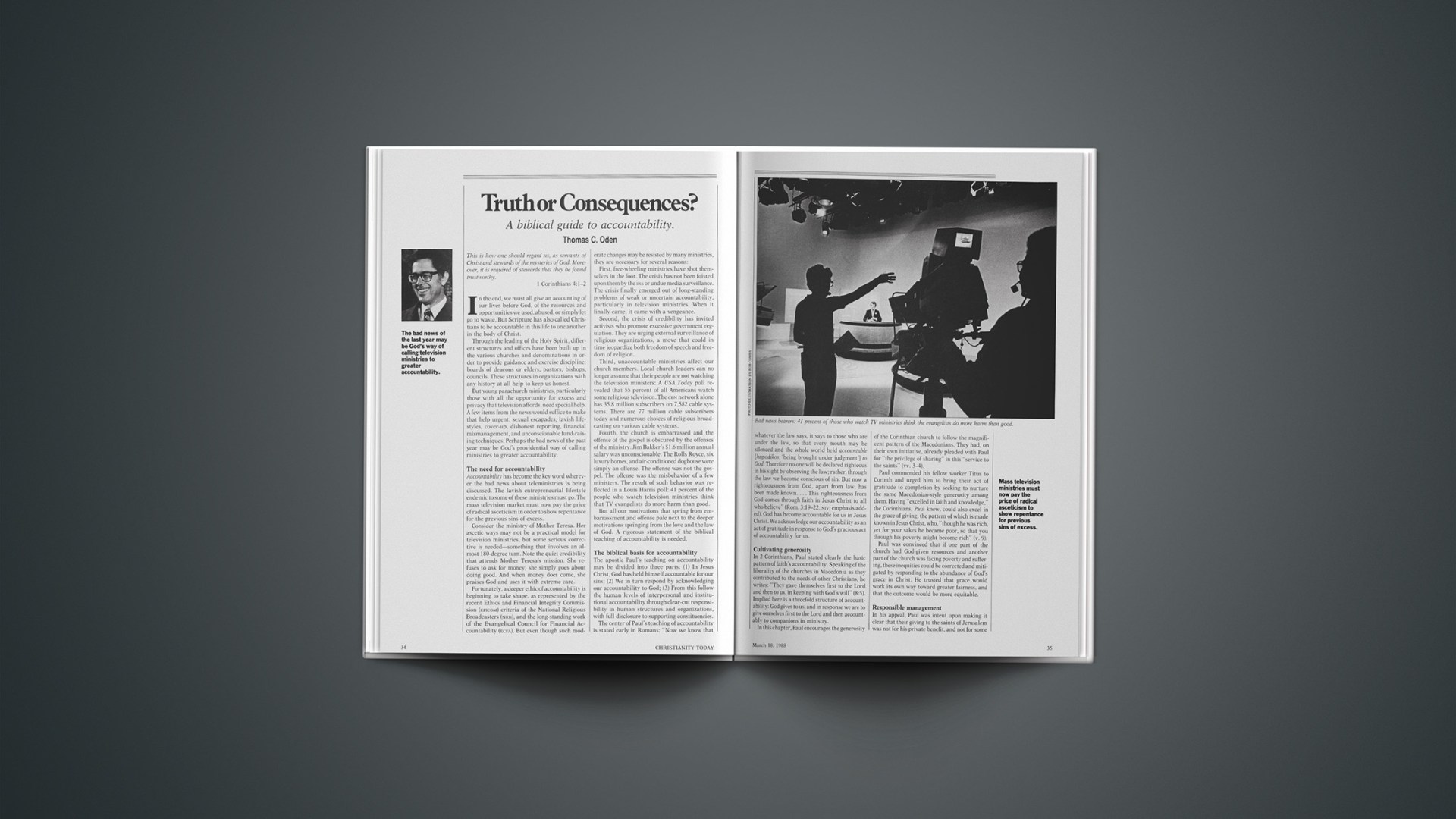Earlier this year, Ray Leith told a national television audience she would be willing to become pregnant and have an abortion so that tissue from her fetus could be used to treat her father, who has Parkinson’s disease. Leith’s father declined the offer, but the case dramatized one of the many controversial aspects of fetal-tissue research and transplants.
Researchers have speculated that fetal tissue could be used in the treatment of many diseases because it grows more rapidly and would likely cause less potential for rejection than adult tissue. In January, the New England Journal of Medicine reported on operations in Mexico where tissue from the brain and the adrenal gland of a 13-week-old “spontaneously aborted fetus” (miscarriage) was implanted in a man and a woman suffering from Parkinson’s disease. The Journal said the two had experienced marked relief from their symptoms since the operations. Fetal tissue has also been used on an experimental level to treat diabetes, and much research is being done on potential treatments for a host of other diseases.
Harvesting Fetal Tissue
Much of the controversy surrounding fetal-tissue research and transplants centers on how the tissue is obtained. Doctors in the Mexican operations said they obtained the fetus with the prior written consent of the mother, who had a history of miscarriages. However, nearly all tissues used in research have come from elective abortions.
One team doing research on fetal tissue and diabetes said in a report presented at the Sansum Medical Research Foundation in Santa Barbara that they attempted to avoid anything that might “be construed as coercion” when obtaining fetuses. In a summary report of the 1986 Sansum Symposium, the researchers said they had floor nurses ask women scheduled for abortions if they would allow “researchers to use the tissue in experiments that may lead to discoveries of better treatments for persons with chronic diseases.” The team said 92 percent of the women agreed, saying it would enable “some good” to come out of their abortion decision.
Dr. William May, professor of ethics at Southern Methodist University, believes fetal tissue donated as a gift by parents who miscarried a child is an appropriate procurement of fetal material, while abortion is not. “If one has imposed upon the fetus the trauma of abortion, it seems to me that further traumas of raiding it for fetal material are not justified,” he said. “One doesn’t have the moral standing to make that further decision, in my judgment.”
Prolifers and feminists both fear that if abortion is the accepted method of procurement, women will be manipulated into having abortions and coerced into later, more harmful abortion procedures that would yield more beneficial fetal tissue. Kate Michelman, executive director of the National Abortion Rights Action League said, “There is a potential for abuse of women in this whole thing, and that worries us.”
In addition, opponents express fears that in some instances, because the tissue needs to be “fresh,” the fetus may not be dead before tissue is taken. Jeremy Rifkin, president of the Foundation on Economic Trends, has filed a petition with the National Institutes of Health (NIH) charging that the government-funded National Disease Research Interchange (NDRI) in Philadelphia does not “perform tests on aborted fetuses to determine whether they are dead prior to removing tissues or organs.” NDRI gathers organs and tissues, including fetal tissues, and distributes them to researchers across the country.
NIH would not comment on the investigation other than to say it is “ongoing.” NDRI president Lee Ducat told the Washington Post it is not her job “to assure that fetal tissues were collected after death,” but she believes that “hospitals and clinics supplying the tissues acquire them lawfully.”
Commercial Breeders?
Another major issue is the fear of commercial exploitation. Rifkin’s group has filed a second petition with the Department of Health and Human Services (HHS) asking that all fetal tissues and organs be placed under the Organ Transplant Act, which forbids the sale of certain body parts for transplantation. NDRI is nonprofit, but Rifkin said a California group, Hana Biologies, is conducting research with the intention to sell fetal products for profit.
“If we don’t get this under the Organ Transplant Act, there’s the troubling potential of women becoming commercial breeders and being paid to grow and harvest fetuses for spare parts,” Rifkin said. Rifkin, an activist who has taken on a variety of social causes, is recruiting congressional help through the office of prolifer Sen. Gordon Humphrey (R-N.H.).
Prolife activist Bernard Nathanson, maker of the Silent Scream and Eclipse of Reason antiabortion films, also sees dangers in fetal-tissue experiments. He recently criticized the Ray A. and Robert L. Kroc Leadership and Visiting Scholars Endowment for its funding of research that uses fetal tissue. Ray A. Kroc was the founder of the McDonald Corporation. The Kroc foundation, Hana Biologies, Chevron USA, and others sponsored the Sansum Symposium on fetal-tissue research.
For David Schiedermayer, a bioethicist at the Medical College of Wisconsin and a member of the Christian Medical Society, the issue comes down to the question of whether the ends justify the means. “We want to possess the ends of effective treatment of all our diseases, and yet not be responsible for the means of how we do it,” he said. “It seems to me we have an insoluble means-ends problem, especially if there is any incentive to have an abortion for the ends of transplantation into another person.”
By Kim A. Lawton.

